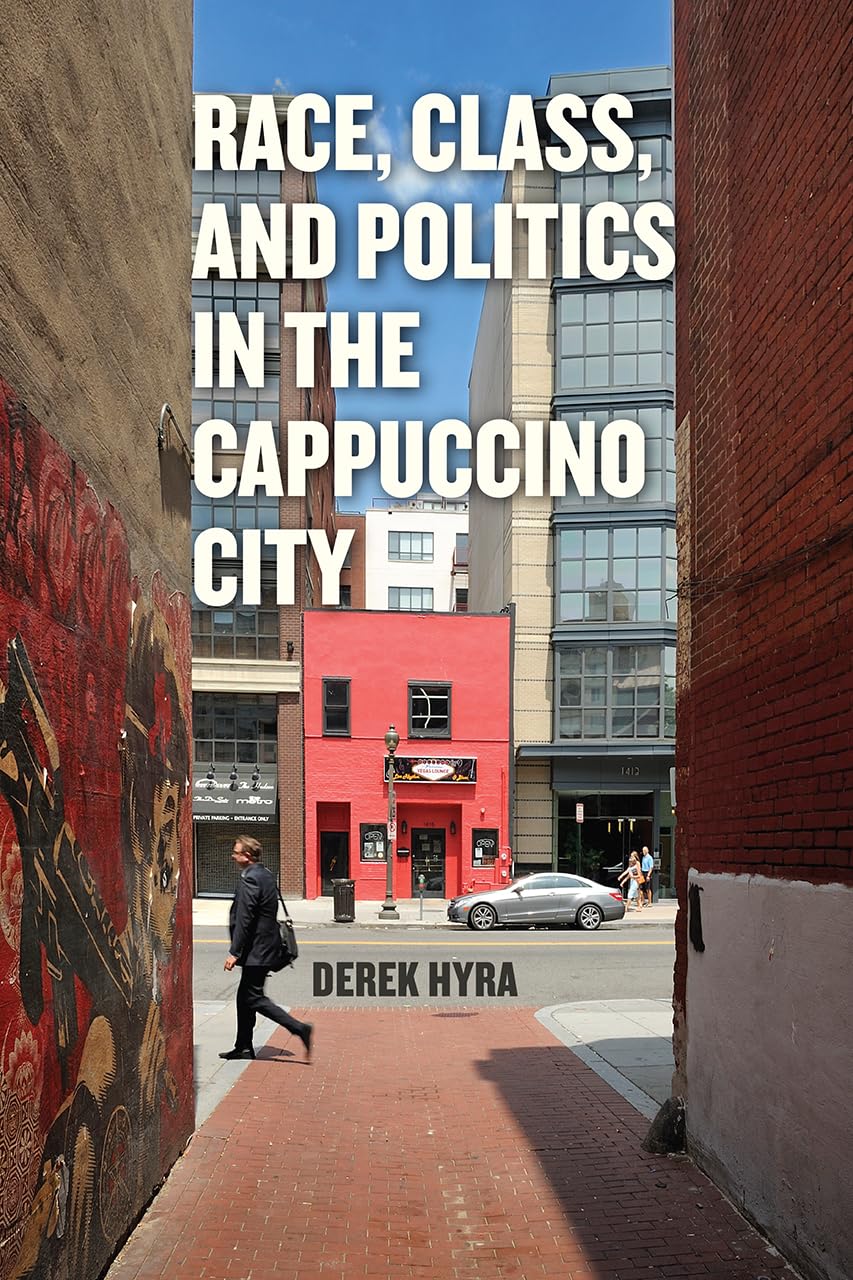

Derek S. HyraRace, Class, and Politics in the Cappuccino City
R**N
Urban revitalization and gentrification. It's Complicated!
Derek Hyra examined the unique history of Washington D.C. through the lens of race and class. I was happy to see that his analysis didn't stop at labeling gentrification and revitalization as a simplistic battle drawn along racial lines. While this is the context that he looks at the Shaw/U Street revitalization, he also looks at subtext such as intra-race relationships in the african american community based on class and socioeconomics. Class and income have as much to do with tensions in revitalization efforts as race does. This book looks at the complex urban planning issues and doesn't shy away from explaining that their are multidimensional factors that need to be understood to have a truly diverse racial and socioeconomic neighborhood or city.
C**N
interesting a Discussion on Race and Class Issues
Often writings on D.C. gentrification underrepresent class distinctions among black folks in D.C. Few lower-income white people live in the city. But there are economic and class issues among black D.C. residents that affect access to housing inside the the city. City residents have benefits (e.g., access to public transportation and shorter commutes) that they are losing as a result of gentrification. That’s about class AND race.
M**S
Great resource for understanding DC gentrification
An interesting, qualitative analysis of DC gentrification. Not the most readable--fairly academic--but a worthwhile read for anyone hopinf to get a better understanding of DC and gentrification in the city.
A**N
Inexplicably shallow
I hate leaving a negative review, but this book has gotten so much positive press, I was shocked when I actually read it.The majority of Derek Hyra's latest is a literature review that re-covers much of The New Urban Renewal. If you're new to gentrification studies, it's a decent primer, although even in this short book, he takes other people's analytical lenses and misuses them.The worst is the inversion of the concept of a "gilded ghetto," calling out wealthy white suburbs for the same (if not worse) substance use and dysfunction politicians bring up to advocate tough sentencing and demolition of public housing. Instead of looking at the crazy amount of drinking that happens in bougie bars in Shaw, Hyra acts like "gilded ghetto" is just a flavor of a neighborhood.The second park, his original research, is thin and feels forced. After a review that points to the growth of jobs east of the White House (from DC's downtown in the 70s, K Street west of Connecticut), he cherry picks a few incidents to claim people are attracted to the crime and touristing the black culture. But he can't find a person who says this, relying on hearsay as some white guy named Ben tells him that he moved there for the price and the bars, and that the black history is merely a nice afterthought. That in and of itself erases black culture - but it's the opposite of what Hyra is saying, and in line with lots of other writing on the subject.He's better in describing the conflicts between the wealthy black developer Chip Ellis and locals over a project that no doubt accelerated the gentrification of the area. But in DC, that dynamic deserves a book of its own, and he doesn't let Ellis speak. He also has some very problematic discussions of gay culture, including a misleading retelling of a beating of gay men by black locals. Hyra leads readers to believe race is an issue, but the victims were also black. A wonderful opportunity for an intersectional look, but Hyra does not probe ways that orientation and gender flavor the black experience of gentrification.Hyra's stated mission is not to discuss the causes of gentrification (despite doing that), just to understand how people get along once it's happened. That would be a great book! But mostly what he wants is for people to play pickup basketball and get coffee at woke coffee shops. Not that there's anything wrong with that, but why not the library, or the playground, as gentrifiers have kids? Rather than look at how people might discover shared interests, it's all about some kind of consumption.
P**M
Four Stars
Insightful and clear explanation of reasons for gentrification in DC
A**R
Four Stars
Reading is more like a treatise!
Trustpilot
2 weeks ago
2 months ago